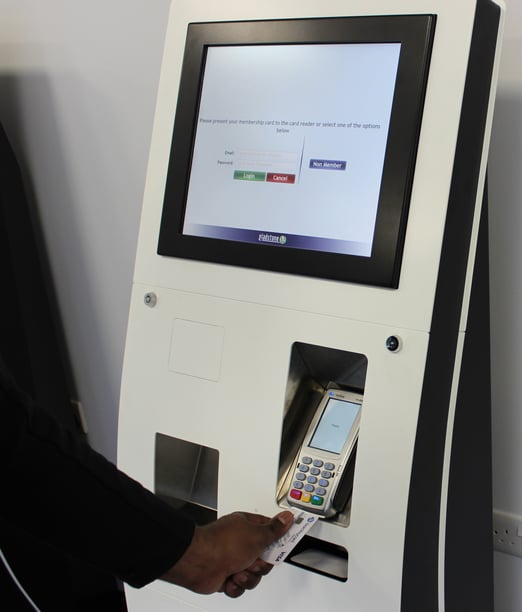-
Advances in technology have been the catalyst for dramatic social change throughout history. Examples extend from the birth of agriculture, the introduction of the printing press and even the railway network (when it actually runs on time). Modernity however, is currently in the midst of a technological revolution. The shift away from traditional industrialisation – to an economy based on information computerisation – has brought us into the digital age.
New generations are now growing up with an inherent understanding of varying electronics, whilst others have adapted to become more tech-savvy. This radical social change has prompted businesses to reflect the way customers pay for goods and services, with a growing need for new in store technologies.
Self-service checkouts were first introduced into the UK in 2003 with the view of capitalising on the needs of the new digital age. The objective was to reduce queue times and make the operation less cumbersome for those who are in a rush to do a quick shop. However, in many cases, self-service applications have an unwanted side effect for causing customer angst.
Although it may seem contradictory, self-service checkouts actually require a higher level of customer service than ever if retailers are to keep customers happy. How often have consumers been angered by “unexpected item found in the bagging area,” – or left cursing at the ineptitude of the system being unable to scan our items properly – leading to frantic intervention from customer service representatives to remedy the issue.

Although self-service machines have their downfalls in our supermarkets, activeNewham has found their application in the leisure industry to be a revelation. In January 2016 activeNewham took the somewhat unusual step of replacing staffed reception areas with an entirely self-service system using Gladstone kiosks.
The move was part of an efficiency project, which has seen activeNewham cease taking cash payments in their centres. All customers are now required to either pay with their debit or credit card, or to ‘self-serve’ their way into centres through the kiosk.
The process is similar to using an Oyster card. Customers can use their single membership card to top up their account, via the call centre to pay for activities or online 24 hours / 365 days a year. Once a booking or top up payment has been made this will be registered onto their membership card to be redeemed at the kiosk.
Keiron Butcher, the IT and Communications Director for activeNewham says: “since introducing the kiosks, we’ve eliminated all queuing in our facilities and seen a 9 percent increase in usage, which leads us to believe we’re now counting the number of people using our sites more accurately. We’ve also seen an 8 percent increase in casual income since introducing self-service.”
Multiple kiosks can be placed into a relatively small area in a foyer, which can take up the same amount of space as a single traditional checkout area with a cashier. This cashless efficiency strategy has maximised the speed of which customers are now entering the leisure centres. During peak hours kiosks have circumnavigated the issue of queue times, and have improved customer satisfaction and reduced the stress on employees.
The stats speak for themselves over the last 12 months £365,000 has been taken via the kiosks. A total of 113,000 payments have been made with the average transaction of £3.23. In addition there has been 866,000 customer self-servicing transactions. The move towards cashless payments has been vindicated with 19,000 cashless transactions being made over the last 12 months. The breakdown of cashless transactions is £68,000 of top-ups and £48,000 used in the leisure centres totalling an average transactions spend of £2.54.
The end has certainly justified the means, with the relatively small average spends totalling a healthy profit margin through the implementation of the cashless/kiosk scheme.
Although the teething problems, beta tests and growing pains of the digital age have their pitfalls, the move towards self-service in the leisure industry has been a triumph. Customer feedback has been extremely positive. Customers are now concentrating on business improvements and what they want to see in terms of reinvestment, rather than the performance of staff members and their customer service skills. Gaining valuable customer insight through constructive criticism, activeNewham is looking to reinvest money into improving their services further.
In terms of evolution in the business world the crux of the argument is quite simple: we now live in an era in which society blends with a high-tech economy, and in which the service sector wants to operate in a more efficient and convenient way. One could argue that activeNewham and the leisure industry in general are better adapted to the use of self-service technology than their supermarket counterparts. One which is better tailored to enhancing their customers overall experience, than one which is more damaging and needs to modify itself.